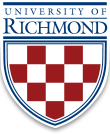Lodging
The IRS has rules regarding lodging based on various circumstances and visa types.
Lodging provided to an NRA employed at UR is considered a fringe benefit. It is taxable wages unless an exception applies. An exception does exist to the wage rule, if the individual meets the temporarily-away-from-home requirements:
- Tax home remains home country
- Away for less than one year
Self-employed individuals may not use the substantiation rules for the full per diem, which includes lodging. They may use only the M&I per diem.
Travel WITH a Business Purpose
If the activities of the visitor (in any nonimmigrant status) can be construed to involve the performance of personal services for the university, then the accountable plan rules can be employed to exempt the travel and lodging expenses from reporting and from federal withholding taxes.
The payment for providing services can be simply room and board. If they are in the US for less than one year, and their tax home remains in their home country, and they can claim employee business expense deductions for their room and board. When these items are provided by their employer under an accountable plan, as is the case when room and board is provided, the room and board may be excluded from their income.
The category of "personal service income" is broader than you might think. For example, in some cases, travel for the purposes of job interviews and receiving special awards or commendations have been considered for tax purposes to be "personal service income".
The IRS will look to see if the personal service fully meets their requirements.
The total grant may be exempt under a tax treaty. Exemption is claimed on Form W-8BEN, which must include a SSN or ITIN. Some tax treaties have articles concerning "other income", which can sometimes be used to exempt certain types of income from taxation when these certain types of income are not covered by any other article of the tax treaty.
Travel WITHOUT a Business Purpose
The honorarium and the reimbursed expenses are in the nature of a grant. (The accountable plan rules for excluding reimbursed expenses from tax only apply if there is a business purpose for visit.)
The total amount paid including the expenses are subject to withholding and 1042-S reporting. The income is considered to be in the nature of "fixed, determinable, annual, or periodical" income (known as FDAP), and is subject to federal income tax withholding in the absence of tax treaty relief.
- 30% withholding
- 14% withholding for F, M, J, or Q visas
- The activity in the United States can be construed to be for the purpose of "studying, training, or research"
- The stay in the United States will not exceed 365 days
- Classify this income as a scholarship/fellowship
- The visitor would file a specially-prepared form W-4 claiming the travel and lodging expenses as "away from home expenses"
- The taxable income is effectively reduced to zero
- All federal withholding taxes are eliminated
Exception for F, M, J, or Q visas -- the reimbursed expenses can be offset with a withholding allowance computed under the rules in Revenue Procedure 88-24 if:
Rent Deposit
If the deposit is not returned, it becomes part of the cost for renting the quarters and may be an employee business expense covered by the accountable plan rules. (If the individual is not providing services, the deposit not returned, and the rent is a taxable grant.) If the deposit is returned to the institution, there is no tax impact. If the deposit is returned to the individual and he does not return it to the institution, it is income to him subject to 30% withholding.
Resident Assistants in Dorms
The fair market value (FMV) of lodging provided to a resident assistant is excludible from gross income under IRC 119(a). The student does not need to file any form to claim this exclusion. In the case of a U.S. citizen or resident alien employee, the employer is not required to report this exclusion, but may report it in block 14 of form W-2 if he chooses. In the case of a nonresident alien payee, the employer will report the exclusion on form 1042-S using exemption code "2". However, the amount will not be reportable on form 1042-S if paid or supplied after 12-31-2000.


